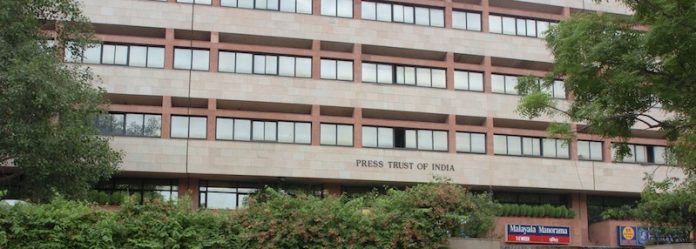The Press Trust of India (PTI) has functioned as a ‘quasi-official’ news agency for decades, benefitting from subscriptions from government broadcasters such as All India Radio and Doordarshan and independent news media. It has retained a measure of independence and unbiased newsgathering by generally keeping its distance from the government. In the past six years, this balancing act has become difficult as the Modi government wants its loyalists at the head of every institution and similarly to dominate the news cycle.
The PTI has tactfully persisted in following its mandate of providing accurate news and information to its subscribers, the Indian media outlets. However, its recent interview of the Chinese ambassador to Delhi and tweets from its China correspondent quoting the Indian ambassador to that country have troubled the Modi government.
On 27 June 2020, the recently created Prasar Bharati News Service (PBNS) sent a letter to the PTI saying it was no longer tenable for the public broadcaster, “to be a patron of PTI as a news agency,” because of its coverage. Prasar Bharati also cited its long-pending demand that PTI lower its annual subscription fee. The PBNS is largely seen as a nascent alternative to PTI supported by the government.
A report in The Telegraph states that journalists noted the proximity of the Prasar Bharati threat to PTI to the 45th anniversary of the Emergency declared on 25 June 1975. “It is ironic that the government has chosen to crack down on a venerable institution like the PTI, hours after marking the 45th anniversary of the Emergency when the press was heavily censored,” stated the Indian Women’s Press Corps (IWPC) and the Press Association in a joint statement.
A purported reason for Prasar Bharati’s actions was PTI’s interview of the Chinese ambassador in India, regarding which the joint statement said, “The fact is PTI was only doing its professional duty. At a time when the Chinese have intruded into Indian territory, it is the job of the journalist to ask the ‘other side,’ in this case, a representative of the Chinese government, why this is happening. The interview was reported widely— in fact, the Chinese ambassador even conceded, for the first time, that there had been some casualties on the LAC.”
Several media organizations defended PTI and the news agency’s respected Beijing correspondent, KJM Varma, who interviewed Vikram Misri, the Indian ambassador in China. Tweets from that interview quoting Misri also upset the government.
The IWPC and the Press Association noted that the authorities had failed to appreciate the meaning of a free, objective, and unbiased media, which is the touchstone of democracy. The Indian Association of Foreign Correspondents said it was standing solidly with PTI for doing its journalistic duty, stating, “It is surprising that those who fought for the freedom of the press during [the] emergency are using exactly the same tactics to muzzle the press.”
In a statement issued jointly from Hyderabad and Chandigarh, the Indian Journalists Union (IJU) condemned Prasar Bharati’s threat and cited not just the Chinese ambassador’s interview but also the interview given to PTI by the Indian ambassador to China in Beijing. The IJU also urged the Press Council of India to take immediate cognizance of the threat to cripple the economic viability of the country’s leading news agency while also condemning Prasar Bharati for serving partisan interests.


















While the central government is using every crisis to gather increasing authority and power, it is not as if ordinary citizens are not noticing it. Unfortunately, the television media in the last few weeks has made a laughing stock of itself, and since it is the most visible many well-meaning citizens have started believing and saying that the entire media is a ridiculous and sold-out affair. In this sense, the government seems to be succeeding in denigrating all attempts at objectivity and fair news and opinion. Although thousands of journalists and editors are still trying to work fairly and objectively, it is becoming increasingly hard to do in the light of unfair accusations of being ‘anti-national.’ How can anyone be called anti-national for reporting and commenting on evidence and fact-based stories and interviews?